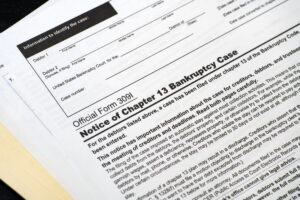One of my primary concerns as a bankruptcy attorney is making sure that I protect every possible asset that my client has. Bankruptcy is a legitimate path to a new financial start, but the drafters of this important law understood that in order to ensure a new start debtors can’t be stripped of all their personal belongings, including their home and car. Fortunately, both federal and Colorado law allows debtors to keep most, if not all, of their property. These laws are called exemption laws. Among the property that Colorado exemption laws protect are criminal reparation, or restitution, proceeds given to crime victims. Colorado Revised Statute Section 13-54-102(q) protects “the debtor’s right to receive, or property that is traceable to, an award under a crime victim’s reparation law.”
If you are entitled to criminal reparation proceeds, make sure you tell your bankruptcy attorney. Understanding what property a client owns or has a right to is critical in making sure that your attorney can help you retain it. Withholding information can red flag your case for the trustee and result in extra scrutiny. The better course is to disclose everything.
If you are thinking about bankruptcy, I hope you will consider hiring an attorney. Contrary to what you might read online or hear from friends or coworkers, bankruptcy is a highly technical area of the law and involves more than simply filling in forms. Unless you are as familiar with the bankruptcy code and Colorado exemption law as an attorney is, you could find yourself on the wrong end of a motion for dismissal by the trustee. Once your case is dismissed, your creditors will be able to proceed just as they were doing before you filed.


